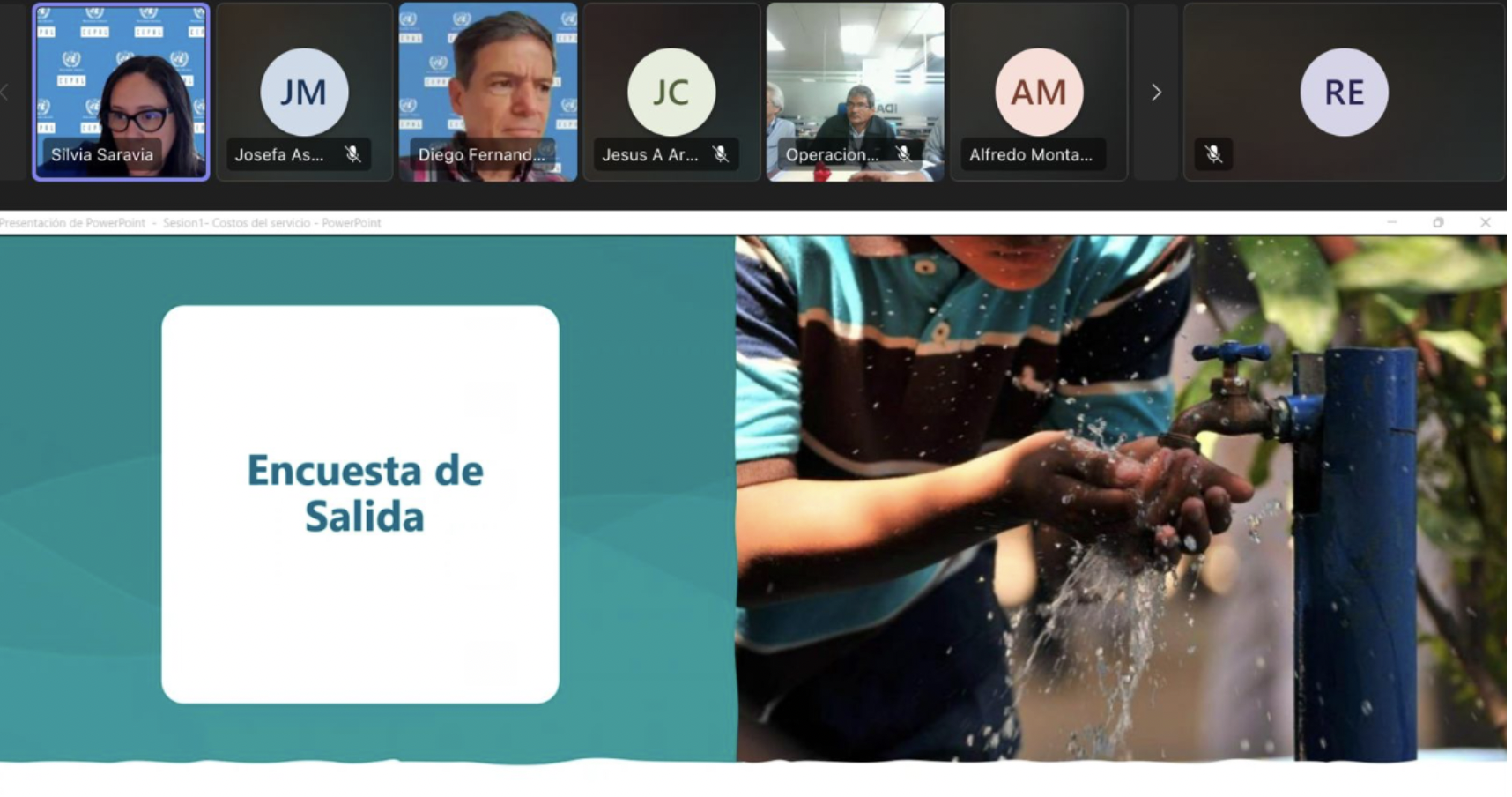Tariff and Energy Efficiency Strategies for Water Sustainability in Panama: First Seminar
Work area(s)
Topic(s)
The Webinar, organized by ECLAC on September 3, 2024, aimed to provide key stakeholders in the water and sanitation sector in Panama with the necessary tools and knowledge to develop a sustainable and inclusive tariff system. The first session, titled “Calculation of Service Costs,” delved into the methodologies and tools used to accurately assess the costs associated with providing water and sanitation services.

The seminar, titled “Tariff and Energy Efficiency Strategies for Water Sustainability in Panama” and led by Dr. Silvia Saravia Matus, Economic Affairs Officer in the Water and Energy Unit of the Natural Resources Division at ECLAC, addressed the complex challenges facing the water and sanitation sector in terms of creating sustainable and inclusive tariff systems.
The first session focused on the crucial aspect of accurately calculating the costs of water and sanitation services. The session was divided into several key topics:
• Principles and Concepts: The session began by covering fundamental principles such as tariffs, billing, and the concept of the required average income (Average Cost of Service). This segment emphasized the importance of understanding the financial foundations necessary to maintain water services.
• Cost Calculation Methodologies: This segment was particularly detailed, exploring various methodologies for calculating service costs. Topics included comparing real versus theoretical costs, past versus future costs, and the differences between short-term and long-term financial planning. Additionally, the distinction between financial and economic costs was highlighted, providing a holistic view of the fiscal responsibilities involved.
After the instructive session, an interactive roundtable discussion was held, allowing participants to directly engage with the material. This part of the webinar was especially valuable for gathering diverse perspectives on the challenges faced by different stakeholders. Participants raised relevant questions about the presented topics.
The session concluded with a summary of the key points, emphasizing the need to develop tariff systems that are both economically viable and accessible to all segments of the population. The webinar ended with an exit survey, allowing participants to provide feedback and express their interest in future sessions.
Country(ies)
-
Panama